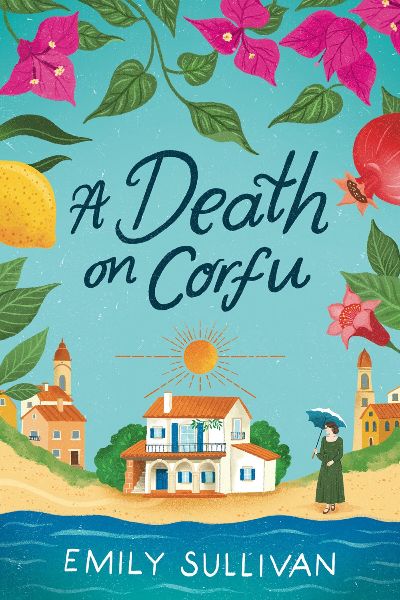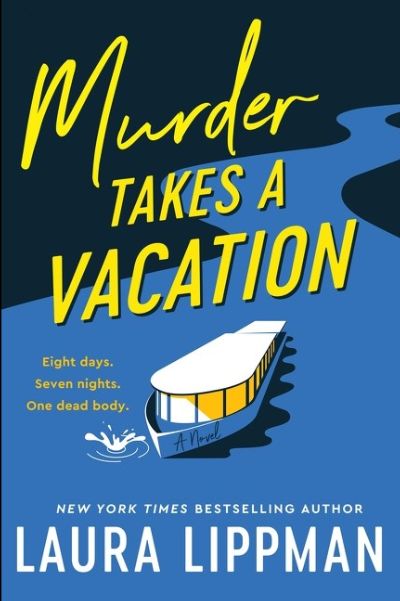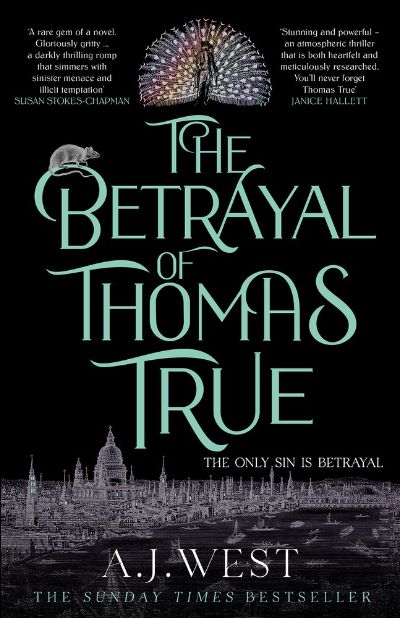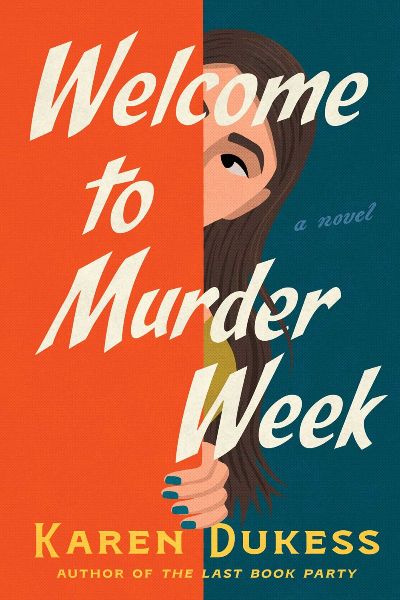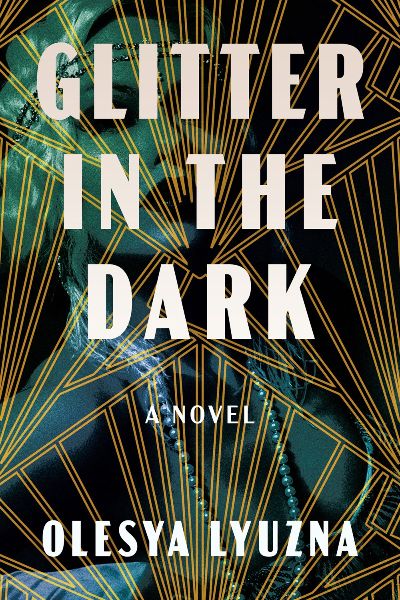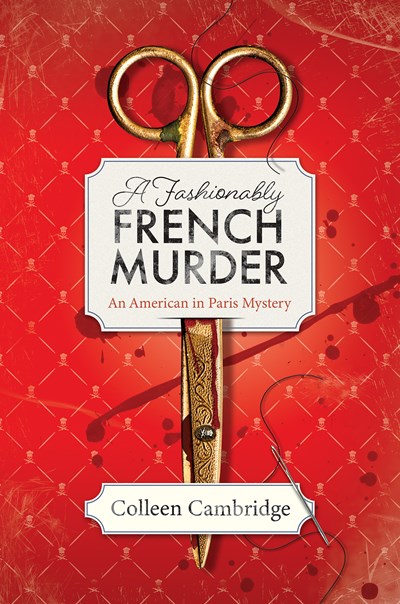The island of Corfu at the turn of the 20th century, with its native Greek population, large British expat community, and tensions therein, provides an excellent background for crime fiction. When her husband died unexpectedly several years ago, Minnie Harper was left with two children to raise on a modest income, with a deathbed promise to her husband that the family would remain in Corfu. Well-educated Minnie isn’t in the position to turn down a side gig, so when she is asked by her neighbor Stephen Dorian—a well-known, and handsome, mystery author—to type the manuscript of his latest book, she can only say yes. Despite her loathing of the man. But just as the two seem to settle into a disagreeable routine, Minnie discovers that one of the island’s young Greek women, who works as a maid, has been murdered. And the British community is doing its very best to ignore the murder, if not actually suppress it, while the local Greeks, for different reasons, are keeping their lips sealed. But Minnie isn’t about to let justice go undone, and with the help of Stephen, she heads off where no British woman has gone before her. Fans of The Durrells in Corfu, a hugely popular Masterpiece Theater drama set in the ‘30s, will appreciate this prequel of sorts, as will fans of cozy historical mysteries by Rhys Bowen, Jacqueline Winspear, and Amanda Flower.
Mystery & Detective
Nova Davies has relocated from London to a remote Cornish seaside town, in part to be with her fiancé, whom she is set to marry in a little more than a week. While Nova loves her job as a social worker in the local community center, she can’t help but be a bit frustrated by her clients. Must the five members of her book group—a real bunch of misfits if there ever was one—argue about everything? But that’s just the beginning of a series of misfortunes, all of which seem to point to Nova. First one of their own, a book group participant, disappears, only to have a dead body show up in his house. Then a significant sum of money, earmarked to repair the community center’s ancient roof, goes missing—could Nova really have been so dizzy that she forgot to lock up the building? There’s a lot of fun to be had here, from Phyllis, an Agatha Christie superfan who insists on using Christie’s plots to solve the murder and find the funds, to Nora, whose life couldn’t become more complicated thanks to a full-on control freak of a mother-in-law and a mom who’s stranded in South America, likely to miss her wedding. And the fiancé? Please dump him. A delight from start to finish, and sure to please cozy readers who appreciate strong characters, a great community setting, and a dollop of criminal activity. For readers who enjoy Lucy Gilmore and Emily Henry.
Readers of this author’s Tess Monaghan series might remember Muriel Blossom as a minor character. She’s plump and elderly, which gives her the ability to disappear into the background, making her effective at surveillance. But life is very different now. For one thing, a found lottery ticket has made her wealthy. She is on her way to France to meet an old friend for a cruise on the Seine, and arrives so early for her flight that she is upgraded to business class. Allan, gray-haired, attractive, also early, takes her under his wing, giving her a melatonin gummy to help her sleep. When they arrive in London too late for her connecting flight to Paris, he shepherds her through the unexpected day. This is not what our Muriel is used to, and though she is flattered and intrigued, her natural skepticism and self-awareness are ever-present. In Paris, she is confronted with murder, art theft, and an FBI agent (or is he?) and a newer, stronger, more outspoken version of herself. The river cruise offers more interests, but also more dangers, and ultimate solutions. Overarching all are Muriel’s memories of her dead husband and a lifetime of shame for her weight, which she finally confronts. The story is complicated, but the character of Muriel is so compelling and wonderful that it’s more important than any crime. Here’s a woman who has found her rhythm and style along with the culprits. Readers cannot fail to love her.
Might this book be a cozy mystery? Let’s run it through my cozy-meter and find out. One, do we have much empathy for the lead character? Absolutely. Daphne Brewster, a Black woman—in fact, the only person of color as far as the eye can see—has moved her husband and family out of south London to a Norfolk town called Pudding Corner to escape urban woes. She’s become so successful at selling antiques that she’s now known as the vintage lady. Still, it turns out that things are as complex in Pudding as they are in London. Two, isn’t the book too slow? No. If you want faster, go find James Patterson. The characters in this town are so absolutely delightful as they roam about the town that I would happily spend another day or two with them. Again, the name: Pudding Corner. Might that be a hint as to what we can expect? Three, is it sexy and violent? Much more yearning than sexy. And if there had been any sex, it was years ago. As to the violence, it is offstage, involving a corpse that keels over in his allotment patch—a little garden the size of a postage stamp where Brits go and plant rutabaga on the weekends. Four, is this book a stand-alone? We hope that the publisher is sensible and Ms. Sutton will be back to delight us again with Daphne and Book Two.
It is 1715, and young Thomas True has managed to escape from his parent’s home, arriving in London, where he takes up residence with his uncle, a candlemaker to whom he becomes apprenticed. But that’s hardly the story. Eighteenth-century London was home to a flourishing, if risky, gay subculture, a world that seduces Thomas and that was centered around the molly houses. “Molly was a slur used for effeminate, homosexual men and the term was adopted to describe the clubs, taverns…where they met up in secret”, according to The British Newspaper Archives. And although the houses were called mollies, they attracted a range of men, from workers to aristocrats. It was a world where Thomas felt a sense of belonging, made all the more immediate with his discovery of beefy carpenter Gabriel Griffin (AKA Lotty), the doorman at Mother Clap’s Molly House. But when a young molly is found murdered, Gabriel goes in search of the rat who is exposing the men to the judicial system. Could it be someone he is close to? This book is that rare thing: both a strong historical novel that drops you into a richly rendered early 18th century and a powerful mystery that remains at the center of the book.
An utterly heartfelt, entertaining, and beguiling sophomore effort from Dukess, author of The Last Book Party (2019). Cath is finally going through the possessions of her recently deceased mother. Cath was raised by her grandmother, and her relationship with her hippy mom consisted of intermittent and impulsive visits throughout her Buffalo childhood, with mom disappearing nearly as fast as she would arrive. So it’s a shock when Cath finds among her mother’s possessions the tickets for “murder week,” in which a quaint British town is staging a fake murder to bolster tourism, with all the locals taking on a role. But even more remarkable is that Cath’s mother—who as far as Cath knows never left the U.S.—planned for them to go together. What was she thinking? Nevertheless, Cath can’t quite shake the idea of murder week, and in several weeks time, she finds herself in England’s Peak District, sharing a cottage with Wyatt, who back in the States works in his husband’s birding store, and Amity, a divorced romance novelist who is suffering from writer’s block. Dukess deftly handles multiple narratives: the search for clues to the hamlet’s fake murder; the unearthing of shocking revelations about Cath’s family; and a slow-moving, present-day romance. A joy for Anglophiles and chock-a-block full of humor, this coziest of cozies will delight fans of Vera Wong, Finlay Donovan, and The Thursday Murder Club.
Shelby is returning home, not by choice. Her career managing a graphic-arts company is over as the company was sold, taking with it her hopes for romance with her boss. She’s had a pretty soft landing, though. Her parents are taking a month-long road trip, leaving her to manage the family needlework shop with the free apartment above. Why isn’t she happier? She feels the judgment of nearly everyone around her, from her practically perfect older sister to her old high school mate Kat who has been vying to take over the shop herself. Kat runs her own business, sharpening knives and scissors and designing and selling needlepoint canvases and high-end scissors. The first weekend that Shelby will be in charge, the shop will hold a trunk show of Kat’s merchandise. When Kat doesn’t show up to help prepare, Shelby goes looking for her, finding her in her mobile sharpening van with a knife in her chest. The police and all others rule this a terrible accident, but not our Shelby. Her unauthorized sleuthing isn’t the only tension in the story. She needs to run the business, maintain the proper position in the community and deal with her sister’s tacit criticism of whatever she does. To assist her, Shelby starts building a community of needlepointers of her own age group, men included, and of course adopts a stray cat. The charming town, Shelby’s renewed love of needlework, and her growing group of friends will have readers eagerly awaiting the next installment. Just as many cozy mysteries include recipes, this one ends with needlepoint patterns.
We are taken back to the roaring ’20s, to speakeasys and the Ziegfeld Follies, in this gritty noir with Ginny Dugan as our main character and sleuth. She and her dancer sister have come to New York from Kansas. Dottie, the sister, dances for the Follies, and is engaged to Charlie, a financial guy from home; Ginny writes an advice column for Photoplay, though keeps angling for real, hard-nosed reporting. Ginny is out partying at a speakeasy when she’s a witness to the kidnapping of Josephine, a headliner who is Black, but her story is not believed. People are dying of heart attacks in Harlem dance clubs, and dancers are reporting ghosts in the dressing rooms of the Follies, young women who have been murdered. There are drug stashes and secret crime bosses. Ginny partners with Jack, a detective, but it is Gloria, a Follies star, who calls to her heart. The level and complexity of the crime speaks to a mastermind: the Eagle, whose identity is unknown until the end. This debut turns back the clock with authentic detail and sharply drawn characters and a strong sense of violence and lawlessness. A challenging book.
Expat Tabitha King—formerly of suburban Detroit—is living, as the kids would say, her best life. She’s upped and moved to post-war Paris—she’s bilingual thanks to her mother and French grandmother—and this third, and best, in the mesmerizing “American in Paris” series finds Tabitha hanging out with her chum Julia Child, from whom she picks up some much-needed cooking tips. She’s also settling disputes between her Grand-père and his partner, Oncle Rafe (they are reopening a restaurant, thus the agida) and dipping her toe in the heady world of haute couture, with Christian Dior, who makes a cameo appearance, leading the way with his “New Look.” But when Tabitha discovers a body in one of the exclusive fashion ateliers, all the frothy fun comes to a halt, or at least a sputter, as Tabitha, with the sometime help of the all-too-handsome Inspecteur Merveille, throws herself into the search for the murderer. It’s a search that takes Tabitha back to Paris during the Occupation and the work of the Resistance against the Nazis and the French Vichy government, as well as those whose role was less clearly defined. Rich in history, full of the value of friendship and family, and with a very, very slow-growing romance (we want more, Colleen!) this is certain to be one of the best mysteries of 2025.
Eight months after a traumatic on-the-job accident almost killed her, George (Georgina) Lennox has been assigned her first case as a newly promoted Glasgow DI: to investigate the suicide of 18-year-old Alan Ferguson on a remote island in the Scottish Hebrides. A disappointed George protests to her boss: “Because nothing happens out there. These islands are medieval time capsules with a population of relics.” Arriving on the stark and barren Eilean Eadar with her partner, Richie Stewart, she finds an isolated community that still clings to its ancient Catholic faith (in Protestant Scotland) and that is deeply suspicious of outsiders. As George and Richie interview the locals, George senses that something is off about the place and its people. Mysterious double spirals are engraved into the village houses and farm crofts. The long abandoned lighthouse where Alan fell is also the site where three lighthouse keepers disappeared mysteriously a century ago. Late at night, George hears the howling of a wolf and spots a masked figure outside her window. Who is trying to thwart the investigation? At the same time, George and Richie clash over the DI’s use of prescription pain medication and her reckless tendency to charge into risky situations without backup. George is a compelling sleuth, tough yet also vulnerable and not always likable, but she has great chemistry with the fatherly Richie. Debut author McCluskey has written a compellingly spooky and creepy mystery with a hint of folk horror à la The Wicker Man. Fans of Ann Cleeves’s Shetland crime novels and Peter May’s Lewis Trilogy will delight in this atmospheric thriller.

